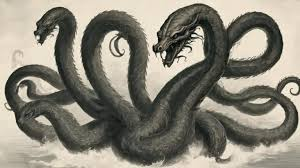Liberalism died on November 5th, 2024. At its core is the belief in rational human autonomy. Among the major issues on the ballot in the US election, from the Harris perspective, was the right of half the population to control their own bodies - and their reproductive rights. This went out the window. Maybe it never really mattered. Instead, it was American men who have found for themselves a form of voluntary servitude, a return to feudalism even though America was never feudal, save for the slave-owning states in the ante-bellum South. In today’s revival of the master-slave relationship, now at the feet of Donald J. Trump, the rest of the world will tremble, as the saying goes, with endless fear and loathing.
Liberalism flourished in a global sense during the period
following 1989, when the Berlin Wall fell, and following the collapse of
Communism in the Soviet Empire. At the
time, it was considered all-too-naively as the “end of history”. Officially one nation (again) by October 1990, the process
of reunifying Germany – East and West – began in 1989, thus reigniting nationalist sentiments exactly a century following the births, in 1889, of a man
named Hitler and his philosopher-king Martin Heidegger. Not so incidentally, both of these men were
born exactly a century after the start of the French Revolution in 1789 – and
both expressed overwhelming desire to negate the legacy of the Rights of Man. Again,
not so incidentally, when Berlin returned to being the capital city of Germany,
history was ripe for revisionism - on the Right. The period when Bonn was the capital of democratic
West Germany could now be looked upon as some form of an aberration.
The reunification of East and West also had geo-political implications
abroad: Germany was a much greater political and economic entity when it was
united rather than when it was divided.
A consolidated Germany within the European Union could also be perceived as a
threat to other member nations, for example Britain, thus giving impetus to the
campaign for Brexit, and the rise of populist figures like Boris Johnson.
Today, Donald Trump is far more dangerous than Bumbling
Boris ever was, and far more dangerous than during his previous term
of office as president. Interestingly, these two men are of German extraction. In
the mythology of the ancient Greeks, there is the story of the Hydra, a hideous
snake-like monster from the underworld with multiple heads. Each time a head is cut off, two would
return. Only Hercules was able to slay
the Hydra. Perhaps we are in need of such
Greek myths to answer this disquieting sense of being alone in a political wilderness,
outside the call for unreasoned nationalistic reaction.
Maybe liberalism, too, needs a hero like Hercules, but certainly
not the hero many perceive in Trump. It
was the German sociologist, Max Weber, who put it best as he concluded
his famous lecture “Politics as a Vocation” in 1919, amid a pandemic and following the defeat of the First World War, calling for a political
hero – as opposed to one who has been mythologized:
Politics is a strong and slow boring of hard boards. It takes both passion and perspective. Certainly all historical experience confirms
the truth – that man would not have attained the possible unless time and again
he had reached out for the impossible.
But to do that a man must be a leader, and not only a leader but a hero
as well, in a very sober sense of the word.
And even those who are neither leaders nor heroes must arm themselves
with the steadfastness of heart which can brave even the crumbling of all
hopes. This is necessary right now, or
else men will not be able to attain even that which is possible today. Only he has the calling for politics who is
sure that he will not crumble when the world from his point of view is too
stupid or too base for what he wants to offer.
Only he who in the face of all this can say ‘In spite of all!’ has the
calling for politics.[1]
[1] Max
Weber, From Max Weber: Essays in Sociology, tr. and ed., H.H. Girth and
C. Wright Mills (New York: Oxford University Press, 1979), p. 128.

No comments:
Post a Comment